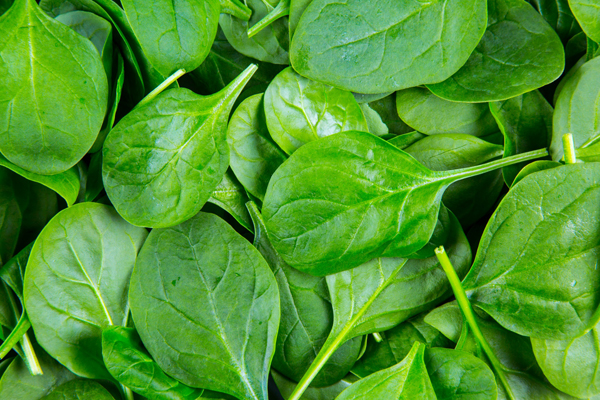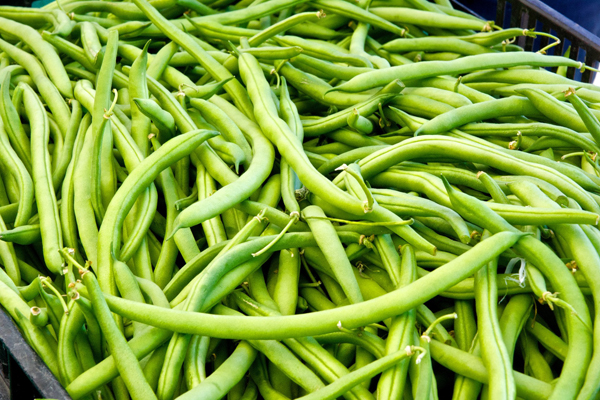
Midsummer heat has arrived.
Its onset seals the end of any spring vegetables. Even some of the summer vegetables struggle in July and August. A combination of determined pests and irregular rain patterns add to the chores of the home gardener. Minimizing the pests and keeping the water dependable for the producing plants will go a long way toward ensuring a harvest. When the productivity of the established plants ends, an opportunity for a fall vegetable crop opens up.
The vegetable variety that is a great performer with a spring planting is probably not a top performer for a fall harvest. Why? Germination conditions differ in the spring and summer. Spring germinations are cool, with expected spring rains a regular source of moisture. As the plants grow, the days get longer, hotter and drier. For plants to produce a fall crop, they must be able to germinate during the hot, dry weather of mid-to-late summer and then thrive as the weather cools and the days shorten.
The first round of fall vegetables can go in mid-July and should be in by early August. That includes tomatoes, Irish potatoes, cucumber and Chinese cabbage. Regular cabbage, bush beans, broccoli, cauliflower and both summer and zucchini squash can be planted from seed right up through mid-August. Mustard, kale, kohlrabi and collards should be in by September 1st. You can get lettuce, radish, spinach and turnips in through mid-September. If you only want turnip greens, they can go in through October 1st. Many of these vegetables can have their growing season extended with the use of cold frames. First frosts are projected in mid-October, so you would want the cold frame in place before that.

So what varieties do best for fall planting?
Beans – Provider, Blue Lake, Top Crop, Derby, Roma II, Half runners
Broccoli – Emperor, Green Comet, Premium Crop, Packman
Cabbage – Round green types, Red Rookie, Gourmet, Stonehead, Savoy King
Chinese Cabbage – Dynasty, Michihli, Two Seasons
Cauliflower – Snow Crown
Collards – Blue Max, Georgia, Vates
Pickling Cukes – Country Fair, Pickalot, Saladin, Carolina
Cukes – Sweet Slice, Burpless, Sweet Success, Marketmore
Kale – Vates, Dwarf Blue, Curled Vates
Kohlrabi – Grand Duke
Leaf Lettuce – Salad Bowl, Oakleaf, Black Seeded Simpson, Red Sails
Mustard – Savannah, Tendergreen, Southern Curled
Irish Potatoes – Cobbler, Kennebec, Yukon Gold, Red Pontiac
Radish – White Icicle, Cherry Bell, Champion
Spinach – Longstanding, Bloomsdale, Tyee, Melody
Summer Squash – Dixie, Early Summer Crookneck, Zucchini
Tomatoes – Better Boy, Celebrity, Long Keeper, Sweet Million, Cherry, Lemon Boy, Pink Girl
Turnip Greens – Seven Top, All Top
Turnips – Purple Top, White Globe, Tokyo Hybrid, Just Right, White Lady
Before planting any seed, be sure the soil is moist. You can soak beets, Swiss chard and spinach seeds before planting to jump-start their germination, which can take up to 14 days. You will need to keep the soil moist for germination, and you will not be able to depend on rain showers. Don’t let the soil dry out during germination. You also want to plant the seed a quarter-inch deeper than you would in the springtime. This bit of additional depth helps minimize baking the germination in dry soil. Some gardeners use shade cloth or row covers until the seedlings are established and can more easily withstand the harsh sun of August.
Watch for insects, diseases and weeds, all of which are more severe in the fall. One to one-and-a-half inches of water per week is a good amount for success. You also want to apply nitrogen to fall vegetables a few weeks after seeding. Any nitrogen applied in the spring would be gone and these fall vegetables need it, too. Try to keep the pH between 5.5 and 6.5. Acid soils are not complementary to their success.
Cool-season leafy crops typically have shallow roots. Weed management, fertilizer and consistent watering will result in the highest yields.
Random Thoughts Shared from Gardening Groups
If your rose bush has yellow leaves or black dots, be suspicious about black spot. Clean up and dispose of all leaves. Start a fungicide spray routine.
Violets are a plant for pollinators. They are the primary host plant for the caterpillars of a group of butterflies known as fritillaries. They are also the sole food source for the mining bee (andrena violae).
Too much rain can put a black bacterial blight on beans. Pick them early.
Onions, garlic and carrots get planted in the fall.
Put a tablespoon of calcium nitrate on every tomato, squash, cucumber and eggplant to prevent blossom end rot.
From the Tennessee Department of Agriculture:
ATTENTION! Did you buy a Boxwood plant at Kroger in April or May? If so, the USDA wants to hear from you. An invasive insect called the box tree moth was detected on shipments of boxwood that were sold at a Kroger in Memphis. The plant gets defoliated, then the larvae consume the bark and the plant is killed. If you bought a boxwood plant from Kroger in Tennessee, Kentucky, Mississippi or Arkansas, we want to remove that plant and set up traps. Call 615-907-3357 to report your purchase.













